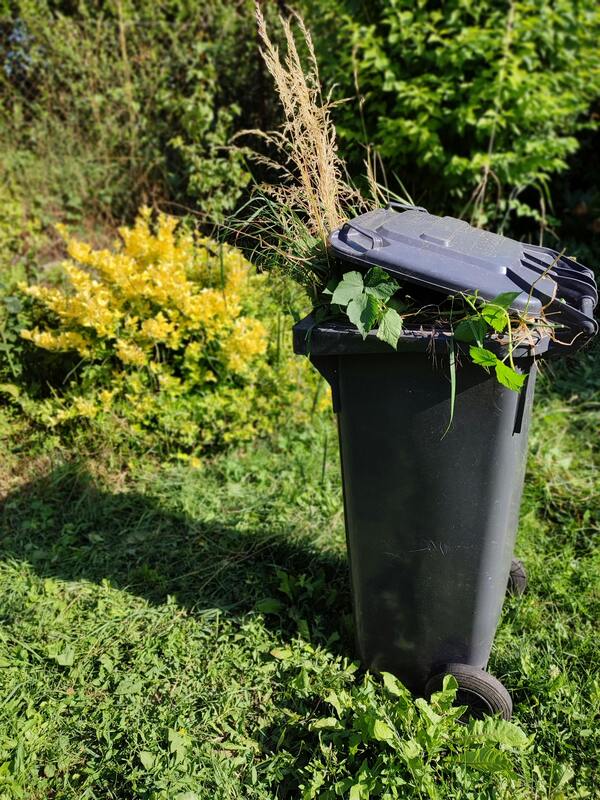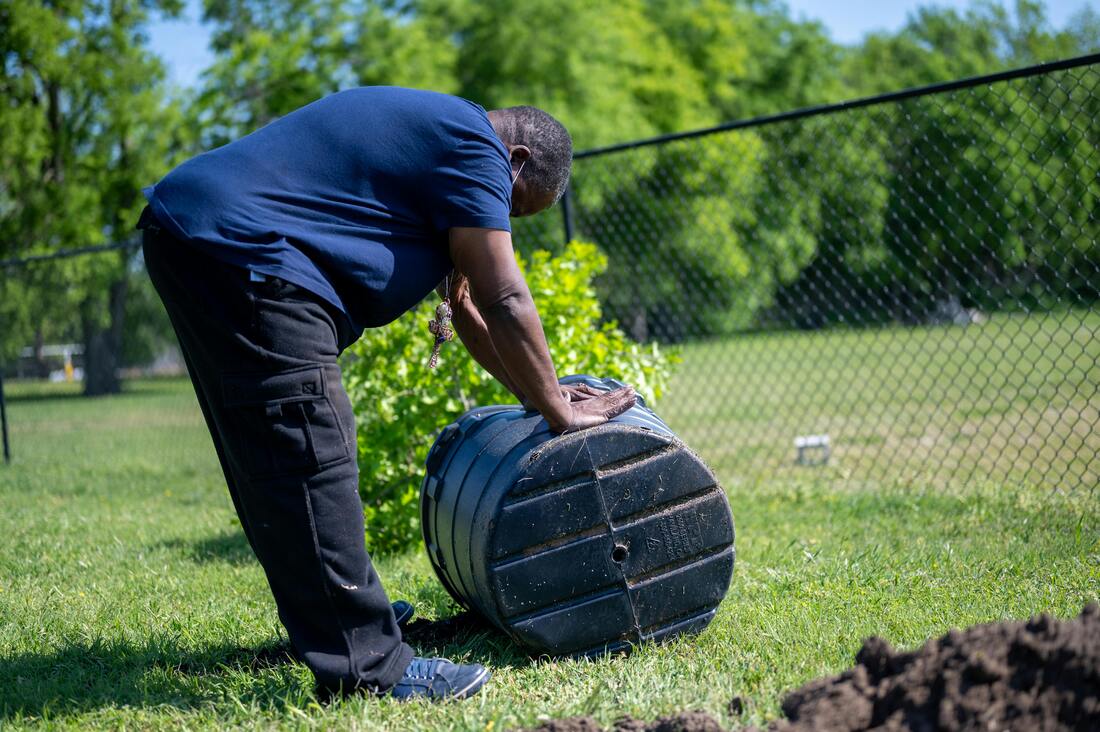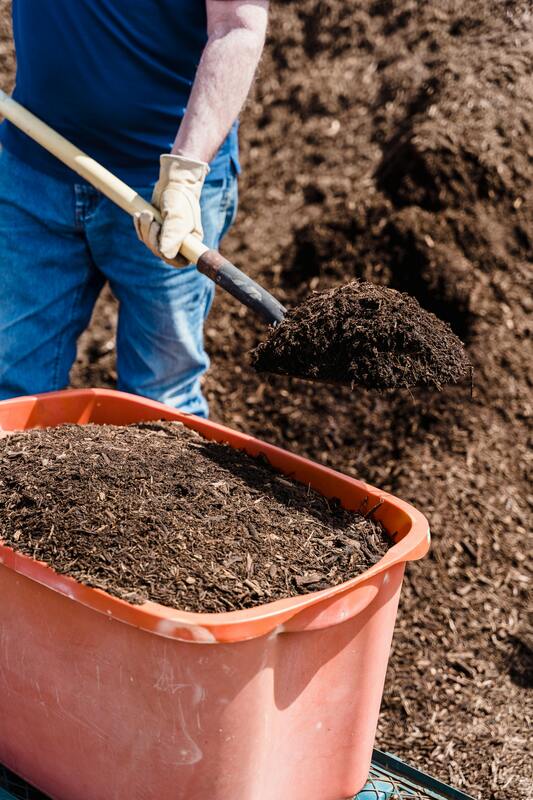* **DIY Bins:** Try using old wood pallets (untreated), plastic containers, or barrels. Just make sure you drill some air holes and have a lid to keep critters out.
* **Worm Bins (Vermicomposting):** These are great if you don't have a ton of space. Red wiggler worms break down your kitchen scraps. They need bedding like shredded newspaper and to stay cool and out of the sun.
* **Compost Tumblers:** These bins rotate, so turning your compost is easier, and pests aren't as likely to get in.
* **Open Piles:** If you have a big yard, just pile your organic waste in a corner.
🥬 **What to Compost**
✅ **Green Stuff (Nitrogen-rich):**
* Fruit and veggie scraps
* Coffee grounds and filters
* Grass clippings
* Tea bags (no staples!)
* Eggshells
* Fresh garden waste
✅ **Brown Stuff (Carbon-rich):**
* Shredded cardboard and paper
* Dry leaves
* Wood chips
* Straw or hay
* Sawdust
* Cotton or wool fabric scraps
❌ **What to Leave Out:**
* Meat, dairy, and oily food
* Pet waste
* Diseased plants
* Plastics, metals, and glass
* Weeds with seeds or invasive roots
* Shiny or coated paper
Putting the wrong things in can attract pests and make your compost stink.
⚖️ **The Magic Mix**
Try to get a mix that's about 25–50% green stuff and 50–75% brown stuff. This gives the microbes what they need to break down your compost quickly.
🔄 **Taking Care of Your Compost Bin**
* **Air:** Turn your compost every few weeks to get air in there. This speeds things up and keeps it from smelling bad.
* **Water:** Keep your compost damp, like a wrung-out sponge. If it’s dry, add water. If it’s too wet, add more brown stuff.
* **Heat:** A good compost pile can get pretty hot, like 130–160°F (54–71°C). That’s perfect for breaking everything down.
* **Where:** Put your bin in the shade, so it doesn’t dry out too fast and stays at a good temperature.
🧪 **Getting and Using Your Compost**
After about 2–6 months, your compost should be dark, crumbly, and smell like dirt. Get out any big pieces that didn't break down and use the good stuff to help your garden grow.
🌿 **Why Compost?**
* Less Trash: You send less waste to the landfill.
* Better Soil: It makes your soil better, so it holds water and nutrients.
* Save Some Money: You don’t need as much fertilizer.
* Good for Nature: It helps local bugs and organisms.
📌 **Some Pointers**
* Start Easy: Use kitchen scraps and yard waste to start.
* Chill Out: Composting takes time—it’s natural.
* Read Up: Check out any local rules about composting.
* **Worm Bins (Vermicomposting):** These are great if you don't have a ton of space. Red wiggler worms break down your kitchen scraps. They need bedding like shredded newspaper and to stay cool and out of the sun.
* **Compost Tumblers:** These bins rotate, so turning your compost is easier, and pests aren't as likely to get in.
* **Open Piles:** If you have a big yard, just pile your organic waste in a corner.
🥬 **What to Compost**
✅ **Green Stuff (Nitrogen-rich):**
* Fruit and veggie scraps
* Coffee grounds and filters
* Grass clippings
* Tea bags (no staples!)
* Eggshells
* Fresh garden waste
✅ **Brown Stuff (Carbon-rich):**
* Shredded cardboard and paper
* Dry leaves
* Wood chips
* Straw or hay
* Sawdust
* Cotton or wool fabric scraps
❌ **What to Leave Out:**
* Meat, dairy, and oily food
* Pet waste
* Diseased plants
* Plastics, metals, and glass
* Weeds with seeds or invasive roots
* Shiny or coated paper
Putting the wrong things in can attract pests and make your compost stink.
⚖️ **The Magic Mix**
Try to get a mix that's about 25–50% green stuff and 50–75% brown stuff. This gives the microbes what they need to break down your compost quickly.
🔄 **Taking Care of Your Compost Bin**
* **Air:** Turn your compost every few weeks to get air in there. This speeds things up and keeps it from smelling bad.
* **Water:** Keep your compost damp, like a wrung-out sponge. If it’s dry, add water. If it’s too wet, add more brown stuff.
* **Heat:** A good compost pile can get pretty hot, like 130–160°F (54–71°C). That’s perfect for breaking everything down.
* **Where:** Put your bin in the shade, so it doesn’t dry out too fast and stays at a good temperature.
🧪 **Getting and Using Your Compost**
After about 2–6 months, your compost should be dark, crumbly, and smell like dirt. Get out any big pieces that didn't break down and use the good stuff to help your garden grow.
🌿 **Why Compost?**
* Less Trash: You send less waste to the landfill.
* Better Soil: It makes your soil better, so it holds water and nutrients.
* Save Some Money: You don’t need as much fertilizer.
* Good for Nature: It helps local bugs and organisms.
📌 **Some Pointers**
* Start Easy: Use kitchen scraps and yard waste to start.
* Chill Out: Composting takes time—it’s natural.
* Read Up: Check out any local rules about composting.


